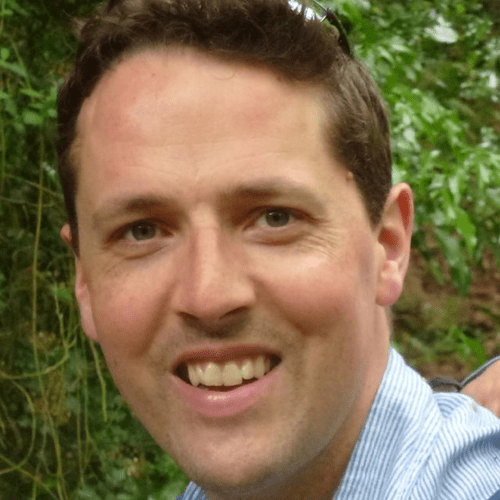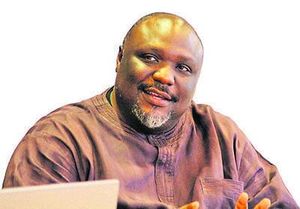Barrister James Ewins is described by his Twitter feed as a: ‘Faith-filled lover of God, justice, the poor, my wife, my children, the church, the voiceless, friends, anti-slavery and sailing’. A specialist in family law, James’ passion for justice has led him to work with bonded labourers in India for the International Justice Mission (IJM) and become specialist advisor to the Joint Select Committee (JSC) on the Modern Slavery Bill. James spoke to Sheila Marshall on his journey with justice so far.
SM: Who’s your favourite lawyer, real or fictional, historical or living?
JE: It might be Nicodemus. He used his legal brain, his mind and heart, to ask the right questions.
SM: Why did you become a lawyer?
JE: I was in a car crash when I was ten and had to go and see a lawyer as part of the legal case that followed. I went to see a barrister and thought, ‘That’s a great job. I’d like to do that’.
SM: Has your career ever conflicted your faith?
JE: I have consistently felt that the English legal system is fair and just. I’m not saying everyone gets a perfectly fair and just outcome. It’s not a perfect system, but it does justice and it helps people.
SM: How do you bring God into your work?
JE:I pray for justice in every case I do, well aware that might not mean my client gets everything that he or she wants. I fight their corner, and I believe in justice.
SM: How did you become specialist advisor to the Joint Select Committee for the Modern Slavery Act (MSA)?
JE: I’m a family lawyer, but in 2007 I became convicted about issues of slavery during the 200th anniversary of the abolition of the Transatlantic slave trade. I began to look into a way to apply my legal training to help the cause of anti-slavery.
I campaigned for Cadburys to go Fair Trade, advocated for child sponsorship in our church, and then worked with IJM in India for two years. On my return, I was invited to join the working group of the Centre for Social Justice, which was investigating 20th century slavery.
The result, in March 2013, was the report, It happens here. That report was the catalyst for Home Secretary Theresa May to look at bringing the Modern Slavery Bill. It was quite a long journey.
SM: What prompted the review of slavery at this time?
JE: There are people who have worked diligently and faithfully in the anti-slavery, human trafficking arena for many more years than I have. I just happened to be feeling particularly convicted at what transpired to be a crucial time.
A few years before, a group of Christians at HTB heard a talk by Gary Haugen, the CEO of IJM. They asked, ‘What can we do about this?’ Their response was, ‘We don’t really understand what the problem is in the UK; we need to do some research’. So, they put a proposal to the Centre for Social Justice (CSJ), raised funding for the research and the report followed. So it was very much initiated by a group of Christians who wanted to do something in an informed and planned way.
SM: What happened next?
JE: The investigation for the report took nearly two years. After the report was published, between March and August 2013, we lobbied various politicians and government and went to Number 10. We spoke to the Cabinet Social Justice Committee to ask them to implement the report. And to a large extent, they did.
SM: You took a stand to right a wrong?
JE: I began to think of this area of interest as my ‘holy discontent’, and I pursued it. I thought, either it will peter out, or, the more I research the area, the more I get involved, the more passionate I will become. And that is what happened.
The point about this particular battle is that it’s not mine — it’s God’s battle. He’s the one who wants to rescue slaves, set the oppressed free and rescue captives. To be caught up in a work of God is an amazing experience.
SM: The Abolition of Slavery Act was passed in 1833, but it wasn’t until 1838 that the fruits of that were seen. What needs to be done to see the MSA do its job?
JE: One of the most important sections in the bill is the appointment of former policeman Kevin Hyland as Anti-Slavery Commissioner.
He is the advocate of victims of slavery. It’s his job to make sure that all obligations of public and private bodies are focused and are actually delivering rescue, relief, rehabilitation and support for victims.
I believe part of the way you do that is to change the balance of power between a perpetrator and victim. First of all, by building up the victim and supporting them, but also bringing the perpetrator down — to use the Old Testament phrase, ‘breaking the arm’ of the perpetrator (Psalm 10:15). He cannot be allowed to continue what he is doing unrestrained and with impunity.
We need a holistic, joined-up, integrated approach. The need is for the numerous NGOs, public bodies, police, doctors, social workers and teachers to have a coherent approach to identify and rescue victims, prosecute perpetrators and change the system, so that victims are first and foremost considered as victims and not, for example, criminals or illegal immigrants.
SM: How should Christians engage with the law (apart from when they actually need to use it)?
JE: Find your ‘holy discontent’. Is there a particular issue that you feel it’s your role to stand up for — victims of domestic violence, children, slaves, low paid workers? There are all kinds of groups, like London Citizens, who pick up on certain key areas.
Merely to try and learn the law in a vacuum is a wasted enterprise, even for a lawyer. So I would look to discern a particular issue or group that needs more justice, compassion, love, and the gospel, and start by meeting the people involved. Relationships come first; learning the law about that issue will come later.
SM: Define ‘justice’.
JE: Justice is all about the regulation of human relationships to achieve fairness, according to God’s perfect standards. Justice is not something that you can bring about on your own. It’s concerned with human relationships.
SM: What should be abolished today?
JE: Anything I say is likely to be highly controversial! Injustice and poverty!
SM: What’s your greatest source of joy outside of work?
JE: I love sailing. I sail dinghy boats. Sailing without a motor, but with just the sails and wind, is incredibly restorative and enjoyable.
SM: How have you overcome your greatest challenge?
JE: I’ve had cancer three times and I’ve been in remission for nearly five years. Apart from being very ill, which is an acute problem, there is the ongoing issue of fear. The answer to that is not, ‘Don’t worry. You’re not going to die. It’ll all be alright’, because it might be awful. But the most profound truth I know is that God will never leave me, ever — that’s the fundamental bottom line. Take everything else away, and God is still with me.
SM: Is God a ‘lawyer’?
E:Well, God makes laws in creation and for people, so he’s a legislator. But he’s also the advocate and judge, and the one who paid the penalty for breaking the law. So he’s not just a lawyer; he’s the whole legal system in perfect unity!















